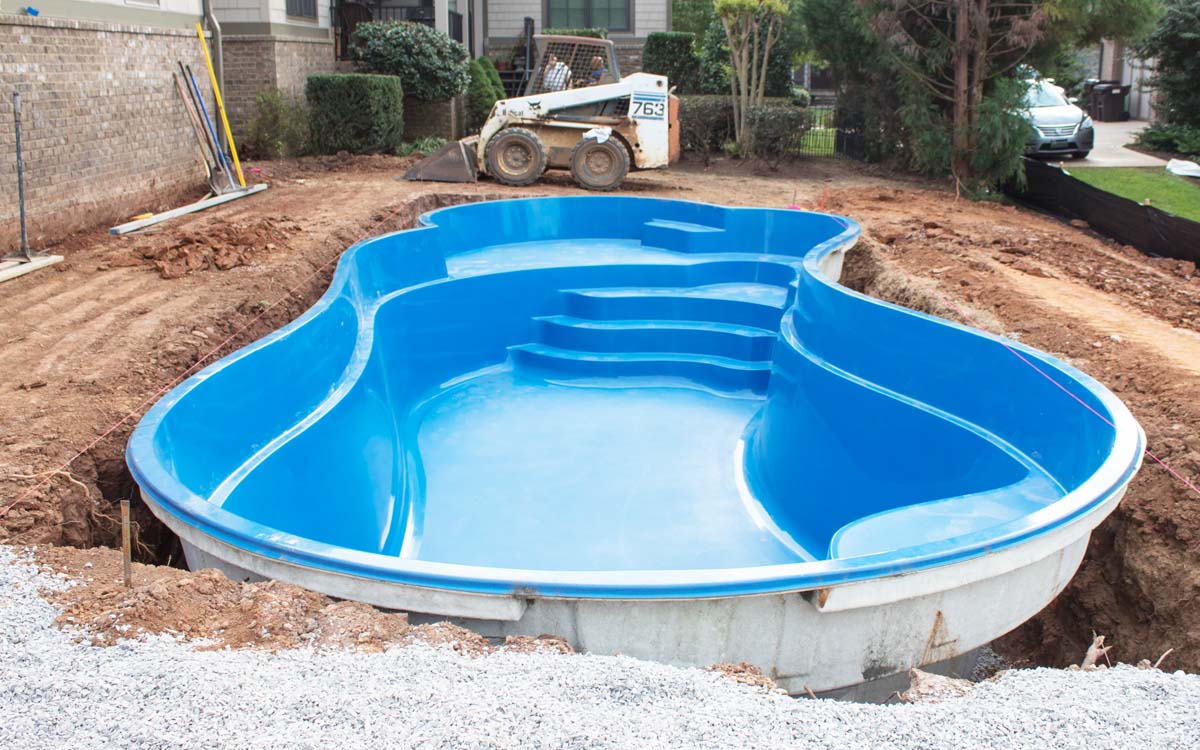A swimming pool is one of the features you can add to complement your home. It is functional and serves aesthetic purposes as well. Having a swimming pool in your home means you have the perfect outdoor space to have fun with family and friends, a place where your kids can also enjoy themselves. A swimming pool can come in different forms, but the most popular are above ground pool and in-ground pool. An above-ground pool is constructed so the depth of the pool is at normal ground level while the in-ground pool is built below ground level, which means the land has to be excavated before it can be built. An above-ground pool is usually constructed in areas where it is impossible or will cost much more money to build an in-ground pool. In such instances, the pool is generally built with a deck that makes it easy to access.
If you are thinking of building a pool, you have to consider the material you will use. This is because the material will most likely determine the cost, durability, and even your pool’s design options. There are three major materials for building pools; we discuss them below.
Concrete
This material, which can also come as gunite, is one of the prime materials for building pools. In fact, it is the most used swimming pool building material and can be used both for building residential and commercial pools. Concrete pools are built using a concrete base that is finished with plaster or any other finishing agent like pebble aggregate. The popularity of this material is due to the many factors such as the fact that you can use it to build any pool of your taste in terms of shape, size, style, etc. It is the material you need if your plan is to build a unique pool. Coupled with this is the fact that the material is also durable and can last for years with proper maintenance. However, it is quite expensive to build, and maintenance is also tasking and expensive. Find your concrete pros at www.honolulu-concrete.com.
Fiberglass
A fiberglass pool is constructed as a one-piece factory manufactured shell that only has to be installed in the location. This pool is not as costly as concrete and equally durable. Unlike the concrete pool, it is easier to maintain this type of pool because it is not porous. Added to this is the fact that it can be installed within a short period. However, the fact that it is factory constructed means it is limited in size and design options.
Vinyl
This is the cheapest material for building pools. Vinyl pools are built with vinyl liners as easily affordable, especially when compared with the other materials. However, maintenance is expensive, and it is not durable.
Conclusion
The material you go for these three will depend heavily on your budget and plans. For a commercial pool, concrete is the best option, and even though fiberglass might look like a great option in residential pools, if you are living as a tenant, vinyl is a better option.

